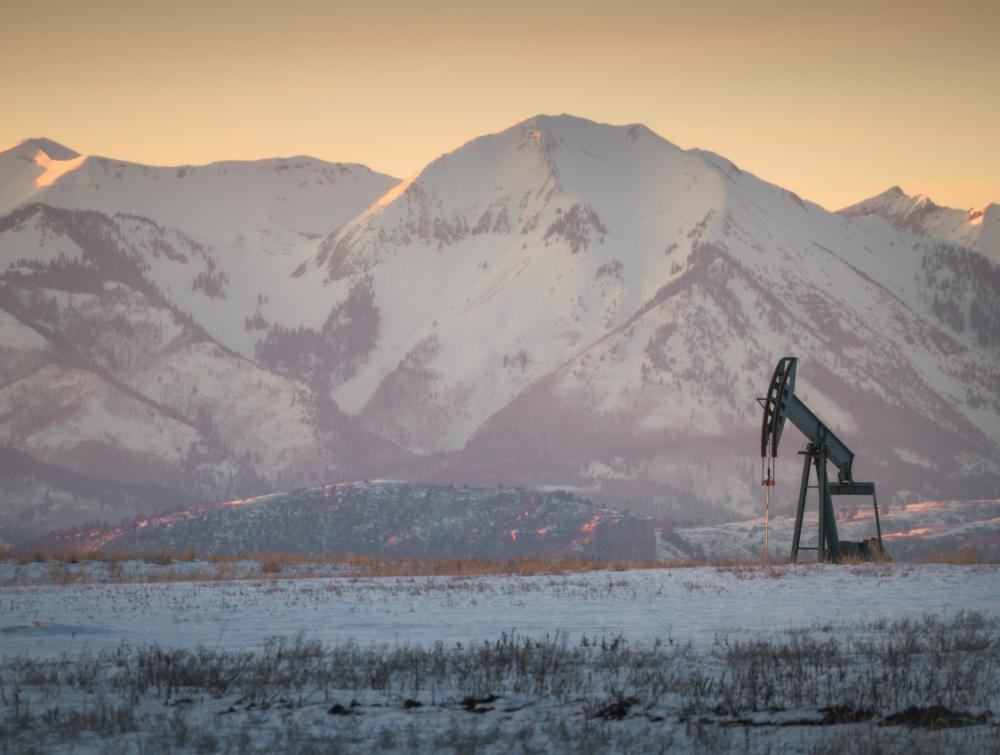MEMO: What New Mexico needs to know about the budget bill’s oil and gas provisions

Oil rig in a winter landscape
Mason Cummings
The budget reconciliation bill just passed the House and is now off to the Senate, posing serious threats to public lands and communities across New Mexico
Right now, nearly 87% of BLM-administered lands in New Mexico are open to oil and gas leasing, which is higher than the national average, according to a new report by The Wilderness Society. But leaders in Congress, conditioned by President Trump’s drill baby drill agenda and farce “energy emergency” declaration, are trying to open more lands at a cheaper price for profiteering oil and gas companies via the budget reconciliation process.
While the amendment that would have forced the sell-off of at least half a million acres of public lands in Nevada and Utah didn’t make the cut, the final bill still contains provisions that are part and parcel of the public lands sell-off agenda to drilling and mining companies.
This memo specifically outlines the major oil and gas provisions in the House Budget Reconciliation bill that will directly impact New Mexico’s communities and public lands. The House passed the package early this morning, sending it now to the Senate.
Reducing royalty rates from 16.67% back to the outdated 12.5% for production on leases
Just last year, the Bureau of Land Management finalized the Oil and Gas Rule which modernized the antiquated federal oil and gas program and implemented a fairer royalty rate and fees, as enacted by the Inflation Reduction Act. These reforms included giving taxpayers a fair return for extraction of our public resources, protecting wildlife and cultural resources, and ensuring that oil and gas companies pay for cleaning up their messes. Now Republicans in Congress are trying to turn back the clock to 1920, when the royalty rate was first set.
First on their list is reducing royalty rates from 16.67% back to the outdated 12.5% for production on leases. According to a 2023 analysis, New Mexico communities have already been robbed $8 billion in estimated revenue due to the 12.5% federal royalty rate, between fiscal years 2013-2022.
If passed, this move will be wildly unpopular in New Mexico. In fact, recent polling from the National Wildlife Federation found that 79% of New Mexicans agree we should keep existing fees for oil and gas development.
Mandating quarterly lease sales in New Mexico
The budget reconciliation bill would mandate quarterly lease sales across the state, requiring that all industry-nominated lands be offered within 18 months.
What’s more, the bill would reinstate something called “non-competitive leasing” – meaning parcels that aren’t sold at an auction are available for two years at bargain basement prices. This is a huge win for the oil and gas industry, and a huge loss for New Mexico taxpayers, who will lose on incurring administrative costs that oil and gas companies would no longer have to cover. Additionally, public lands in the state get tied up in this process, keeping them from actually generating revenue through opportunities like expanded outdoor recreation.
Acres sold noncompetitively are, by nature, less likely to produce, because acres with known oil or gas reserves tend to sell at competitive auctions -- according to government watchdogs, almost 99% of oil and gas leases sold noncompetitively between 2003 and 2019 never produced any oil or gas within their 10-year lease term. This hamstrings BLM from managing those lands for other uses.
Cutting out opportunity for public input on oil and gas decisions
73% of New Mexicans oppose efforts to reduce the review process and opportunities for public input on what takes place on public lands, including oil and gas development. However, as written, the budget reconciliation text would cut opportunities to oppose oil and gas decisions at every turn of the leasing and permitting process.
New Mexico communities experience firsthand the impacts of rampant fossil fuel development on their public lands. Instead of prioritizing a wasteful oil and gas leasing mandate above all else, political appointees and politicians in Washington, D.C., should follow the lead of New Mexico’s senators and representatives, who have stood up for our public lands.
To connect with The Wilderness Society’s public lands policy experts and partners on the ground in New Mexico, contact edenny@tws.org
Related Links:
